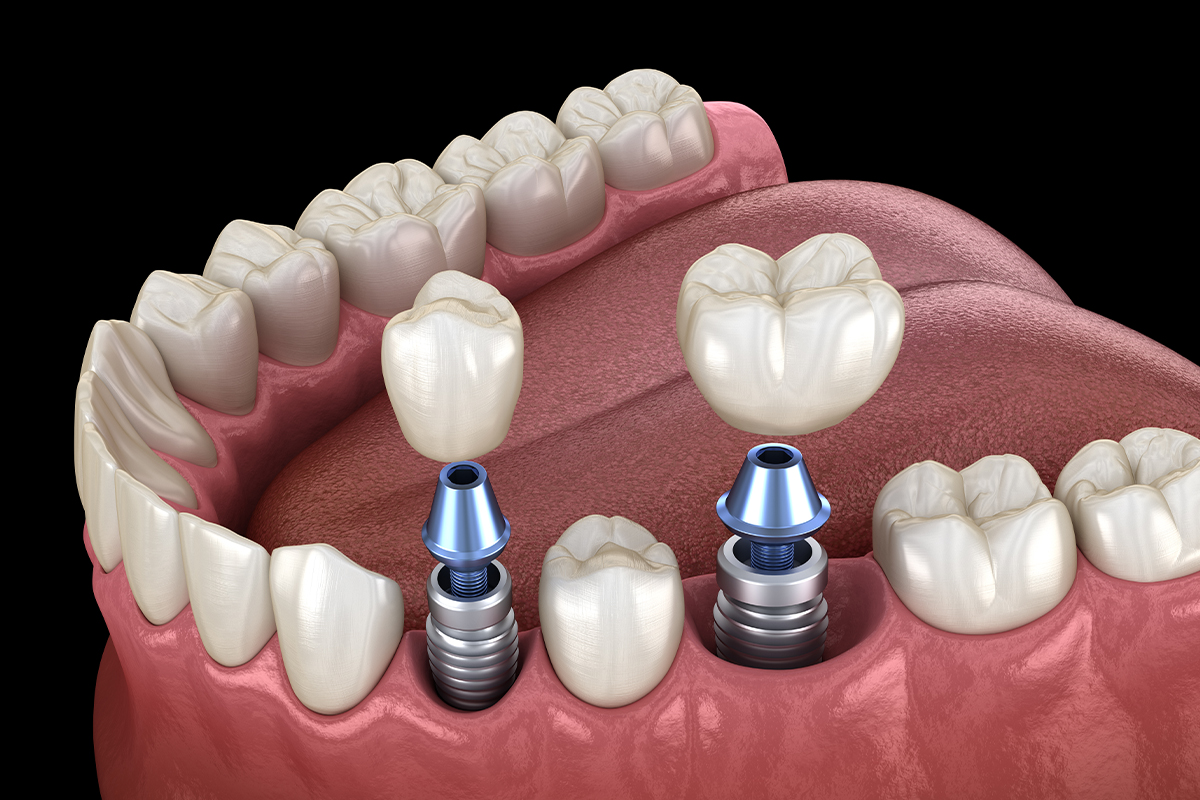
Dental implants have become one of the most popular and effective solutions for replacing missing teeth. Their ability to mimic the function and appearance of natural teeth has made them a preferred option for many people. But once you opt for dental implants, a key question often arises: How long do dental implants last? If you’re considering dental implants, understanding their lifespan, maintenance, and factors influencing their longevity can help you make an informed decision. Let’s dive into the facts you need to know about the lifespan of dental implants.
What Are Dental Implants?
Before we address their longevity, it’s important to understand dental implants. A dental implant is an artificial tooth root placed into the jawbone to hold a replacement tooth or bridge. Unlike dentures, which rest on the gums, dental implants fuse with the jawbone through osseointegration. This fusion creates a strong and permanent foundation for your new tooth.
Average Lifespan of Dental Implants
Dental implants are designed to last a long time. With proper care, they can last 20 to 30 years or more on average. Some patients may even experience implants that last for a lifetime. This longevity is one of the main reasons they are considered a top solution for tooth replacement.
However, their durability depends on several factors, including how well you maintain your implants, your oral health, and the type of implant used.
Key Factors Affecting the Lifespan of Dental Implants
- Oral Hygiene
Just like natural teeth, dental implants require consistent care. Brushing, flossing, and regular visits to your dentist will help prevent gum disease and infections, which can compromise the implants over time. - Bone Health
The success of an implant heavily relies on the health of the jawbone. Patients with strong bone density are more likely to have longer-lasting implants. If you have bone loss, your dentist may recommend bone grafting before implant placement. - Lifestyle Habits
Habits like smoking, excessive alcohol consumption, and poor nutrition can all reduce the lifespan of dental implants. Smoking, in particular, interferes with blood circulation, making it more difficult for your body to heal after implant surgery. - Implant Quality
Not all dental implants are the same. High-quality implants made from titanium or zirconia are more durable and have a longer lifespan than inferior materials. Choosing a trusted dentist Springfield and high-quality implants can significantly impact longevity. - Regular Checkups
Regular dental visits are crucial for ensuring the longevity of your implants. Your dentist will monitor their condition and address any potential issues before they become serious problems.
When Might Dental Implants Need Replacing?
While dental implants can last many years, they may need to be replaced if complications arise. Here are some reasons why you might need to replace a dental implant:
- Implant Failure: This can occur if the implant doesn’t correctly fuse with the bone or if infection sets in.
- Gum Disease: If the surrounding gums become infected, this can lead to implant failure. Proper oral hygiene and maintenance are crucial to avoid this.
- Wear and Tear: Over the years, the crown attached to the implant may wear down, requiring replacement or maintenance.
Maintenance Tips to Extend the Lifespan of Your Implants
To maximize the lifespan of your dental implants, follow these simple maintenance tips:
- Brush and Floss Regularly: Brush twice daily and floss to prevent plaque buildup around the implants.
- Use Non-Abrasive Toothpaste: Avoid using abrasive toothpaste, as it can scratch the implant’s surface and cause wear.
- Avoid Hard Foods: While dental implants are strong, biting on hard foods like ice or candies can damage the crown or cause discomfort.
- Quit Smoking: Smoking can slow healing and reduce the success rate of implants.
- Visit Your Dentist for Regular Checkups: Having your implants examined annually will ensure they’re in good condition.
Signs You Might Need to Replace Your Dental Implant
Although dental implants are durable, there are sure signs to watch for that indicate something may be wrong. These include:
- Pain or Discomfort: Persistent pain or discomfort around the implant site can indicate infection or failure.
- Swelling or Inflammation: Swelling of the gums or around the implant site could indicate an infection or other complications.
- Loosening of the Implant: If the implant or crown becomes loose, it could be a sign that the implant is failing or that the bone around it is deteriorating.
Dental implants are a long-lasting, effective solution for replacing missing teeth. They can last for decades with proper care and maintenance, providing you with a reliable and functional replacement. The longevity of your dental implants will largely depend on your oral hygiene, lifestyle, and regular dental checkups. You can enjoy your implants for many years by following the right maintenance steps.
If you’re considering dental implants or need more information about how they can improve your smile, contact our dental office today for a consultation. Let our team of professionals help guide you through every step of the process!
